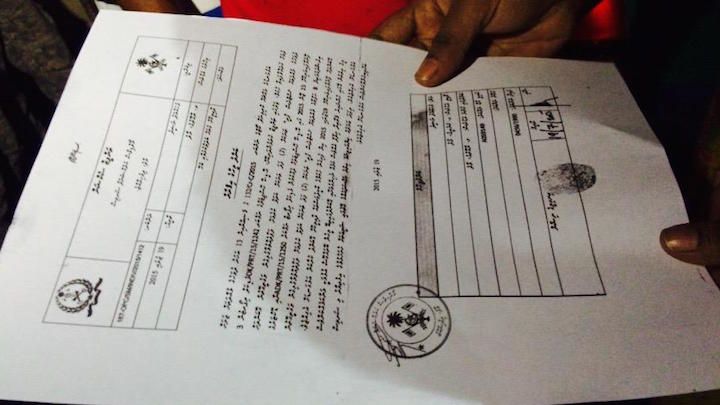Vaguthu adds to dispute over documents in Nasheed’s transfer to house-arrest
In yet another twist in the dispute over documents relating to former President Mohamed Nasheed’s permanent transfer to house arrest, a pro-government news outlet has published a document that claims the opposition leader would be pardoned by July 24.

29 Aug 2015, 09:00
A pro-government news outlet has published a different version of the document relating to former President Mohamed Nasheed’s permanent transfer to house arrest, a move lawyers have described as an attempt to mislead the public.
The document published on Vaguthu appears to be an agreement signed by Nasheed on July 19, stating that he is aware he would be freed from a terrorism conviction at 9am on July 24.
Nasheed’s lawyers say that the Vaguthu document is forged and have asked the police to launch an investigation. The document that Nasheed had signed on July 19 only said his sentence had been commuted to house arrest, lawyers said.
“This fake document, published by pro-government Vaguthu, is aimed at clouding the facts and misleading the public, especially because the government does not seem concerned about this particular document. The Maldives Correctional Services (MCS) has asked the police to investigate the document we publicized, but not the Vaguthu document,” said Hisaan Hussein, a lawyer representing Nasheed.
Become a member
Get full access to our archive and personalise your experience.
Already a member?
Discussion
No comments yet. Be the first to share your thoughts!
No comments yet. Be the first to join the conversation!
Join the Conversation
Sign in to share your thoughts under an alias and take part in the discussion. Independent journalism thrives on open, respectful debate — your voice matters.




